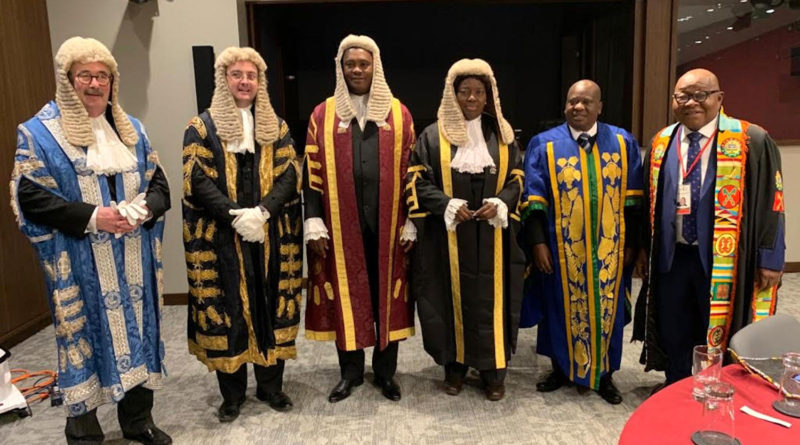Speaker Muturi Rallies Speakers’ Forum to embrace Citizenry Engagement in a bid to Enhance Openness,Transparency and Accountability, in Legislatures
The Speaker of the National Assembly Hon. Justin Muturi has rallied fellow House Speakers and Presiding Officers within the Commonwealth to embrace Citizen Engagement as a sure way to enhance openness, transparency and accountability within legislatures. Speaking when he made a keynote address during the opening ceremony of the 25th Conference of Speakers and Presiding Officers of the Commonwealth (CSPOC) in Ottawa, Canada, Speaker Muturi noted that there has been a paradigm shift with regard to the exclusive place of Parliaments to make decisions on behalf of the people, adding that modern Parliamentary Democracy called for a continuous engagement and deliberate involvement of citizens in the formulation, coordination, implementation and monitoring of policies, programmes and legislations.
” The traditional nature of Parliaments as institutions that housed a club of elitist representatives bestowed with the exclusive power to make decisions on behalf of the people is rapidly changing. Citizens are better informed and want to be directly involved in the decisions that affect their lives”, said Speaker Muturi.
He observed that it has been posited that democratic societies are ruled by consent of the governed and require public support to provide legitimacy for the institution of Parliament. He called upon legislatures to embracing the implementation of the 2012 Rome Declaration of Parliamentary Openness. During the World e-Parliament Conference in Rome on September 15, 2012, and which also marked the International Day of democracy, national Parliaments, sub-national and transnational legislative bodies resolved to increase commitment to openness and to citizen engagement in Parliamentary work.
Citing the progress that Kenya has made in this regard, Speaker Muturi said that in Kenya public involvement in the legislative process is a constitutional requirement which facilitates the credibility and general acceptance of resultant Acts of Parliament by those they are meant to govern, as set out in Articles 10, 118, 124, 201, 221 and 232 of the Constitution of Kenya.
Making his remarks on the same subject, the Deputy Speaker of the House of Representatives of Malaysia, H.E. Nga Kor Ming noted that active participation by the citizens can increase legislative productivity since tracking and monitoring us being followed closely by concerned citizens. He submitted that open Parliaments will encourage Parliaments to consider changes that take into the aspiration of the people and improve the relationship of trust between the public and Parliament.
While stressing the fact that citizen engagement would not automatically change the people’s attitudes towards Parliament, the Speaker of New Zealand House of Representatives, Rt. Hon. Trevor Mallard underscored that Parliaments must remain a place where strongly held views can be aired and robust discussions carried out about values and priorities for the country. He urged the forum to at all times be constantly tempered with the knowledge that they have been elected to serve, represent and reflect the people of their respective countries.
Others who addressed the opening session forum include Hon.Tory Smith, the Speaker of the Representatives of the Parliament of Australia and Hon. Phandu Tombola Chaha Skelemani, the Speaker of the National Assembly of Botswana.
The 4-day forum hosted by the Parliament of Canada, brings together national Parliament Speakers and Presiding Officers from over 50 Member States of the Commonwealth Parliamentary Association. The biennial forum currently in its 25th edition, was created in 1969 as an initiative of the then Speaker of the House of Commons of Canada, Hon. Lucien Lamoureux. It aims at maintaining, fostering and encouraging impartiality and fairness on the part of Speakers and Presiding Officers of Parliaments while promoting knowledge and understanding of parliamentary democracy in its various forms and developing parliamentary institutions.

